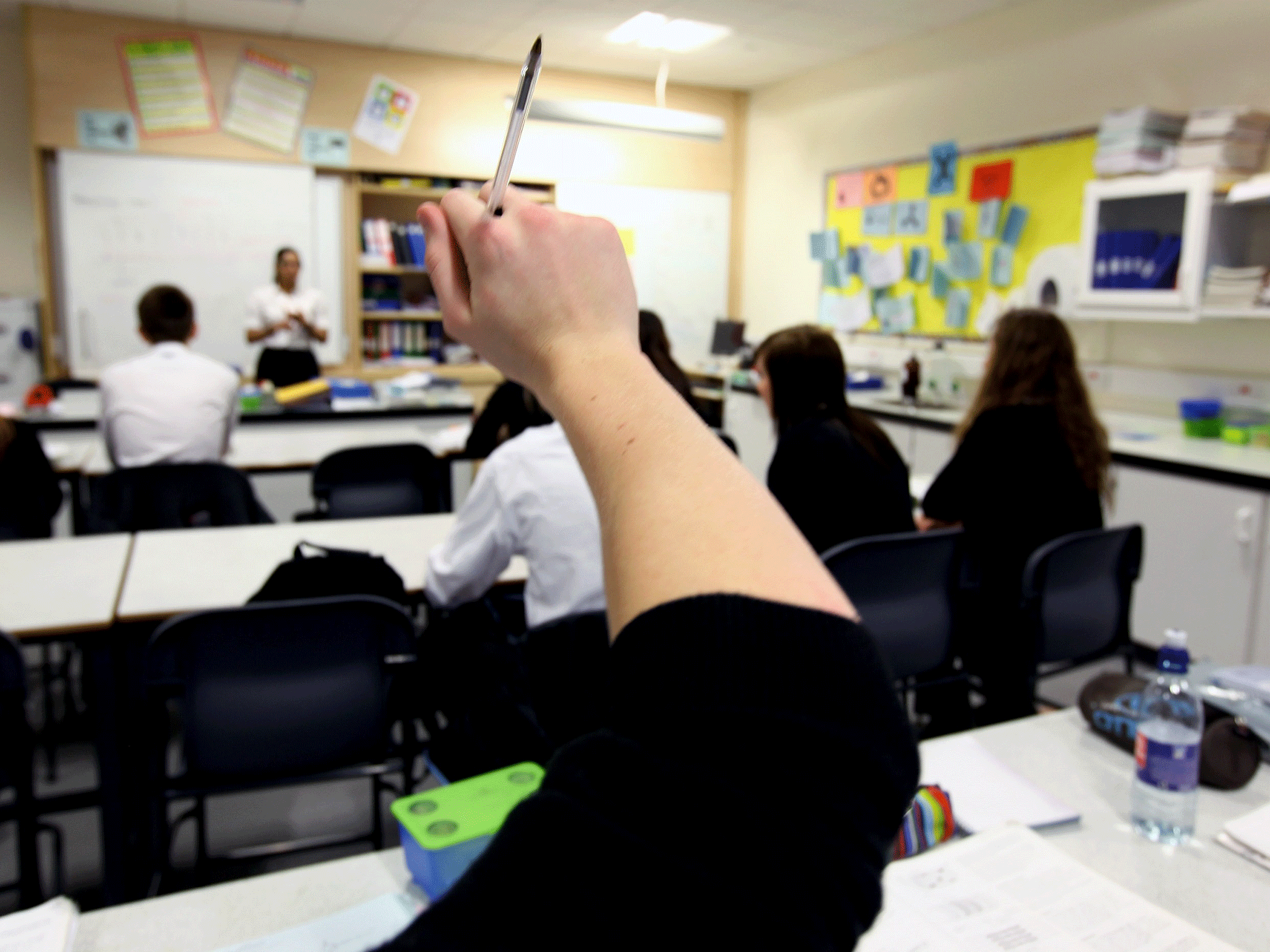Regardless of coronavirus – teachers are facing a staffing crisis
Too many schools have a stream of young, inexperienced teachers who arrive with high levels of enthusiasm and leave burnt out, too early, writes Ed Dorrell


If and when education secretary Gavin Williamson gets a breather from trying get the schools system fully functioning after a summer of Covid-related disasters, he will be swiftly reminded that the teaching profession remains in the grip of a massive recruitment and retention crisis.
There are many explanations for why England doesn’t have enough teachers, but one of the most significant is that the profession has a big problem holding on to those with experience.
Teachers are literally getting younger – with more and more teachers fleeing the profession long before they are due to collect their (still generous) pensions. Indeed, England has among the youngest teachers in the OECD, according to a report published last week, and Williamson would do well to ask himself – and again his officials – why that might be the case. And what could or should be done about it.
But before we get to the why, it is worth asking if this is in fact a problem. One school of thinking argues that because teaching is such an all-encompassing pursuit, it is essentially a job best-suited to the young and enthusiastic and those with endless reserves of energy. I mean, who doesn’t want their kid taught by a tigger-like 20-something bouncing around the classroom, inspiring their young charges?
And to some extent that is true. But as usual in our youth-obsessed culture, this narrative hugely under-appreciates the importance of experience and professional memory. Professions by their very nature, at least in part, are defined by the passing on of accumulated knowledge, experience and understanding. This should also be true of institutions, which of course includes schools and their staffrooms.
Currently – in too many primaries and secondaries – that link with the past is lost. Too many schools have a stream of young, inexperienced teachers who arrive with high levels of enthusiasm and optimism and leave burnt out, too early. The profession, the education system and some of its most successful schools are simply not set up to encourage and develop staffrooms with a wide-range of age-groups mixing and sharing ideas and experiences.
Children, pupils and students benefit from being exposed to a wide range of teachers, who can expose them to a wide range of teaching approaches and a diversity of lived experiences, and who truly understand the communities in which they are working.
But this is not what is happening now. And it’s time to ask ourselves why.
The first, and most obvious, is that teachers are burning out. They do an undoubtedly stressful job, and it is clear that for many, even before Covid, it was becoming more stressful. Heads and school leaders are under inordinate pressure from Ofsted, league tables and other “levers of accountability” and too often this stress is passed down to classroom teachers.
But this is only part of the story. Despite many attempts over the years, the profession isn’t designed to nurture and reward those teachers who want to stay in the classroom rather than target headship, and relatedly there are not enough opportunities, formal or otherwise, for these veterans to share their experience. Formal mentoring programmes are nothing like common enough in staffrooms.
Another reason that too many teachers duck out before they should is that schools are terrible at offering flexibility to their staff. Often older teachers, or indeed younger teachers who are bringing up children, would fall over themselves to move to a more flexible teaching timetable, but are too often told that it simply isn’t possible.
There is an almost puritanical culture in too many schools that you are expected to give everything of yourself – and more – to the school and its pupils. A hinterland, a private life or, God forbid, a social life are considered signs of weakness. As teachers get older they often find this philosophy simply unsustainable.
Finally, behaviour. The truth of the matter, despite huge improvements in recent years, is that student behaviour in many schools is still not good enough. Teachers are not supported to do their jobs, and ultimately this leaves them wrung out and incapable of carrying on. The best schools have behaviour policies that successfully allow their staff to do what they do best – teach – rather than dealing with an endless stream of low-level, and sometimes high-level, disruption.
Williamson needs to tackle these issues head on. Schools need older teachers to stop fleeing the classroom – not only because there aren’t enough professionals for the number of vacancies, but also because a healthy profession and school system would be one in which experience is both valued and rewarded.
Ed Dorrell is a director at Public First and a former deputy editor of the Times Educational Supplement




Join our commenting forum
Join thought-provoking conversations, follow other Independent readers and see their replies
Comments